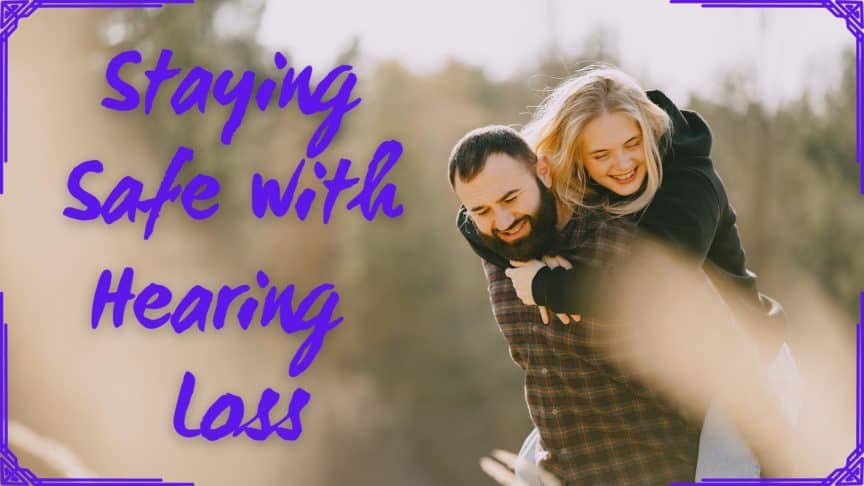While hearing loss is an issue that begins in the ears, its effects are far-reaching. Communication issues caused by hearing loss can cause alienation from loved ones, diminished confidence, chronic depression and loneliness. These issues can affect many aspects of life such as less likely to live an active life, to cognitive decline and a higher risk of dementia. However, the consequences of untreated hearing loss reach beyond communication issues and associated side effects. A recent study found that over a ten-year period, the risk of accidents, falls and hospitalizations was 30% higher for those with hearing loss, when compared to those with normal hearing.
Safety Risks with Hearing Loss
Your ears not only help you communicate with others but also help you navigate the world around you, by localizing sounds. When your ears can hear to their fullest potential, they help you identify the direction, proximity and speed of sounds around you. This allows you to avoid a bike coming from behind you on a path, or oncoming traffic while driving a car. It can also help you identify subtle sounds such as the jingle of a dog collar which can keep you from tripping over your family pet.
Analyzing the Risk of Uncorrected Hearing Loss
A 2018 study analyzed data from the National Health Interview Survey between 2007 and 2015 about accidental injuries among a cross-section of adults. The study revealed that the odds of injuries leading to hospitalization were twice as likely among those who had hearing issues.
The study also found that the rate of accidental injury increased depending on the severity of hearing loss, from 2 percent among those with excellent hearing, to about 5 percent among those with hearing problems. The rate of leisure injuries increased from .8 percent among those with excellent hearing to 1.4 percent among deaf adults.
Addressing the Issue
If you do have hearing loss, it’s important to not let it go unaddressed. While hearing loss is often permanent, it can be treated with the use of assistive listening devices, such as hearing aids and cochlear implants. These devices amplify the specific sounds you struggle with, so you can follow conversations and be more aware of your environment. However, even if you are treating your hearing loss, it is still a good idea to implement a few safety measures, to ensure you are protected in emergencies.
Smoke Alarms
Most smoke alarms work by alerting you to the risk of fire by emitting a loud and piercing sound if smoke is detected. For many, it is hard to imagine not hearing this sound but if your hearing loss is compromised it could take you longer to hear the sound or if your hearing loss is severe, you may miss it completely. It is not recommended to sleep with hearing aids, making it extra important to invest in smoke alarms that employ the other senses. Some smoke alarms come equipped with flashing lights. There are also smoke alarms that can shake or vibrate your bed if there is an emergency while you rest.
Access to 911
If there is an emergency, the sooner you can contact help the sooner it will arrive. Most know to call 911 for an emergency but if you have compromised hearing it may be more difficult. What if your hearing aids are not in because you are sleeping or they malfunction? It is incredibly difficult to hear over the phone for many when they have hearing loss, making an emergency call a potential nightmare. Many Smartphones offer captioning features to help you read what people are saying on the phone if you struggle with this issue. It’s important to keep your GPS turned on, so in the case of an emergency, first responders can find you easier.
Take Advantage of Hearing Technology
The biggest safety risk with hearing loss is ignoring the issue. There are so many features available on modern hearing devices to keep you safe and connected, it’s amazing. The sooner you treat your hearing loss the more you can protect your mental, emotional and physical health and safety. The first step is to have your hearing tested to determine the extent of your hearing ability. Let us help you identify your hearing issues and help you find the safest and best solution for your hearing needs.

